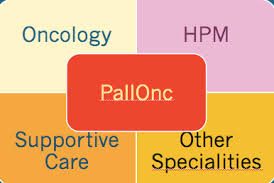I have been practicing medicine for 35 years and the great secret is that it just keeps getting better. No day goes by without an important learning moment, a unique observation or just the satisfaction of making a difference. Today I had one of those moments of revelation that will slightly change all days which follow.
Stan is a 57-year-old man with curable colon cancer who requires surgery. Unfortunately, that surgery will result in a colostomy. Without that specific operation, there is an increased risk the cancer will spread. Stan is smart, aggressive and independent. He wants us to modify the treatment to avoid the colostomy. However, such a compromise is outside standard of care, and not supported by what modern medicine understands about colon cancer treatment.
In my office, Stan and I talk at length and he poses a challenging question. He says, “Doc, if I was a friend of yours what would you recommend?” After a moment of thought, I decide that is easy. I would give a recommendation that makes cure most likely. Hundreds of thousands of patients live active lives with colostomies, but very few live such lives with active colon cancer. Therefore, I would tell my friend to have the surgery, accept the colonoscopy, giving the most compassionate support I could muster.
However, then I had a conversation inside my own head. I asked me, Jim Salwitz, not Dr Salwitz, what I would do if it was my belly threatened with a colostomy. To my surprise, I had a moment of bright light insight and intuition. I might very well accept the risk of colon cancer recurrence, nary even death, and not get the colostomy. I was stunned! Patient Jim overrides Dr Jim.
Is this the right, reasonable or intelligent decision? Probably not. It is one thing to recommend a higher risk to a patient and another to accept that for oneself. Nonetheless, it seems to me that each patient should have the opportunity to understand each choice, even if some of those choices may put him or her at risk. It may be very hard for patients to make an informed decision as most patients have not seen the downside of bad medical events, and may chose a higher risk alternative based on the false assumption that complications can be corrected. If doctors are going to help patients to have such freedom of choice, it requires extensive education, patience and personal insight. This is a tough area of health communication as there is security and clarity in data, but some patients may need to explore the unknown.
I told Stan about my personal “decision.” I told him that although the data was unclear, it was likely he was taking a higher risk of cancer recurrence and death if he did not have the colostomy. I emphasized that a full life was possible with a colostomy. However, I told him that from a standpoint of risk verses perceived quality of life, I might personally choose to avoid the surgery.
This is a difficult area in medicine, when patients decide “the best” is not for them. It is doubly hard when the doctor himself can clearly see and empathize with the patient’s conflict. In the end, Stan’s choice is not supported by research, data, my personal experience, nor by experts in the field. Nonetheless, if he decides to choose that path, I will support him.







4 Comments